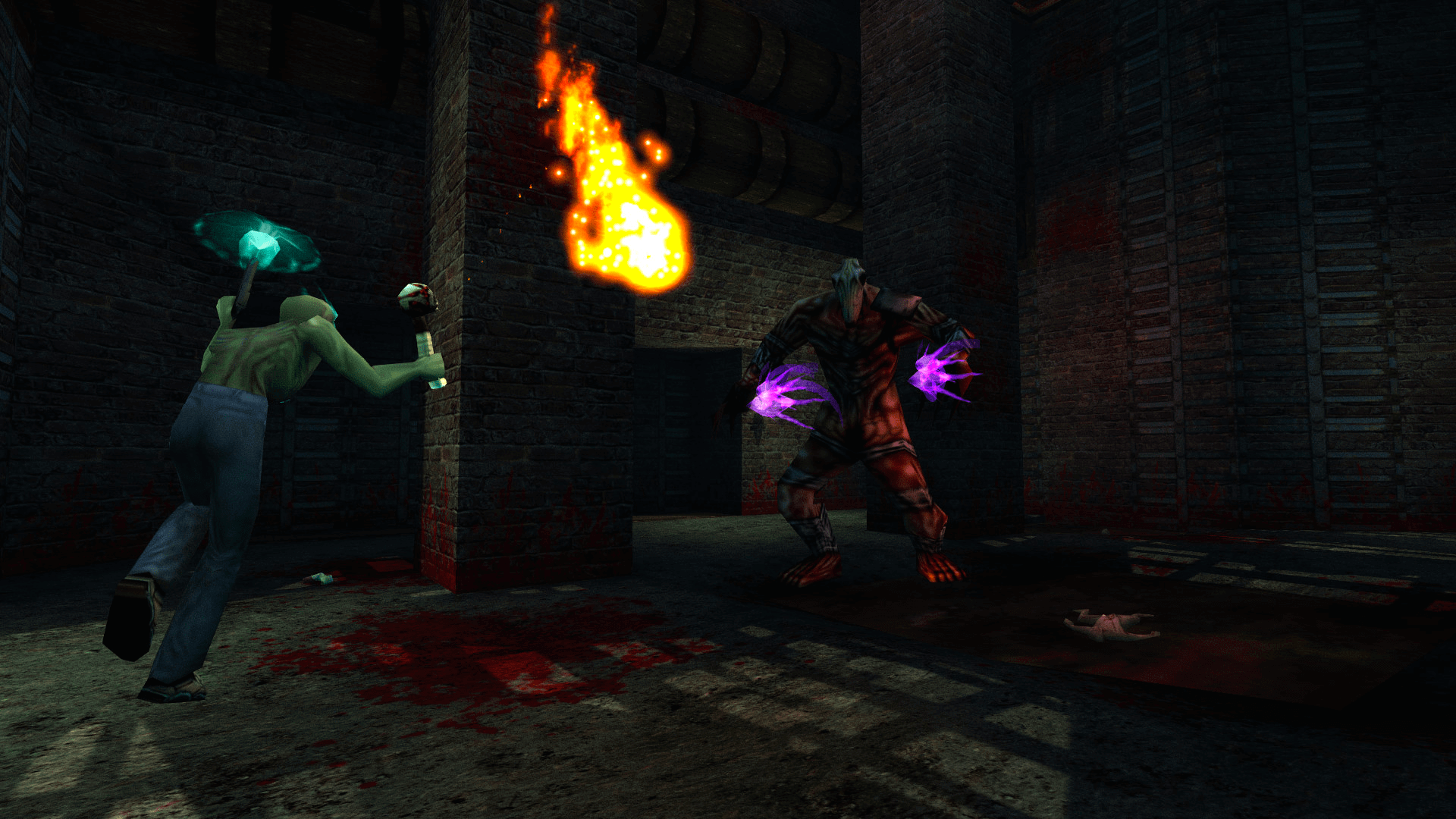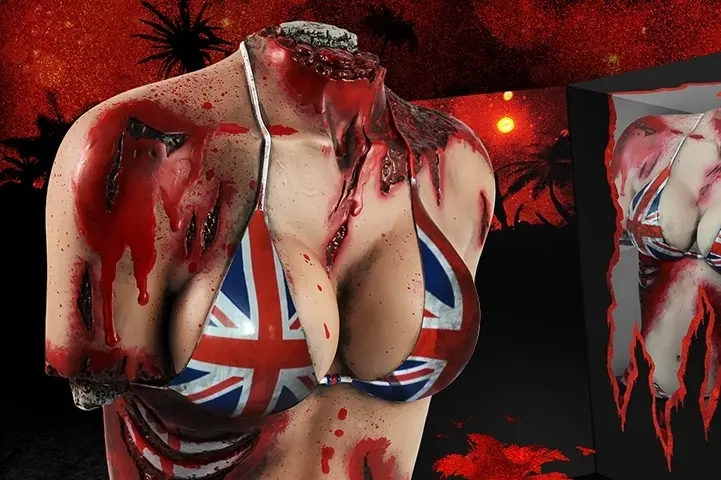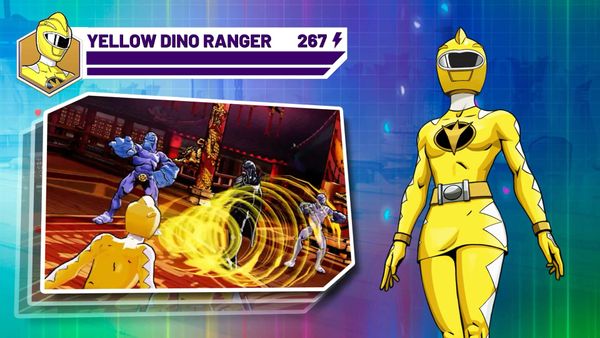For several reasons, video games have been no stranger to controversy over the years. From the controversial Call of Duty level with players mowing down civilians in a crowded airport, Postal 2’s insanely stereotypical portrayal of its colorful cast, to discussions of loot boxes and gambling reaching UK Parliament. Developers have been pushing the envelope on acceptable content since the early 1980s.
But dev teams aren’t the only ones in an Olympic-sized swimming pool of hot water. The video game marketing teams behind some very well-known franchises have also found themselves in quite a bit of trouble with their consumer base and the public in general. So grab your favorite Halo-themed mountain dew as we look at some of the most controversial ad campaigns gaming has ever seen.
The 5 Most Controversial Ad Campaigns in Gaming History
Ad campaigns are supposed to grab the audience's attention and keep them interested in the product being marketed. So while some ad campaigns may be offensive, it does not mean they weren’t successful. The following will cover some of the most upsetting campaigns ever made, regardless of whether the ads worked.

Sony Sacrificed A Goat
No, you did not read that wrong. During the mid-2000s, as the God of War franchise was at its peak, the push to remove violent video games was also in full swing. So when concerned parents found out that a goat was being sacrificed at a media event to promote the new God of War game - folks had a laundry list of questions.
I cannot stress the point enough; they had a decapitated goat at the event. We've opted not to share a photo here, but the morbidly curious can view a censored photo on Nintendo Life.
Rumors flew about satanic rituals, animal cruelty, and the consumption of raw goat innards as the story grew wings. Unfortunately for Sony, most of this was blown way out of proportion. Then again, what do you expect when you decide to bring a dead goat to a promotional event?
The truth was less exciting. Yes, there was indeed a dead goat at the event (which is insane enough), but it had been dead well before the party and it was returned to a local butcher afterwards. So while a dead goat was there, it wasn’t killed at or even for the event.
As for the consumption of raw goat innards - the goat had been filled with a meat soup that the caterers prepared. So while guests did eat from the goat, it was not its innards, but rather a carefully prepared meal from a professional catering company.
Finally, there was a rumor that they dragged the lifeless body around the event's perimeter to reenact the religious sacrifices of ancient Greece.
This rumor is almost certainly untrue. No one was allowed to touch the goat, and the soup was handled by caterers who handed out portions to guests. No one could get their hands on the goat outside of paid employees.
All this does not excuse Sony's decision to use a dead goat to bring attention to its already controversial game release – though it does lessen the impact of some of the more egregious rumors. Sony released a statement apologizing for their actions and stated that the event fell below the “high standards of conduct we (Sony) set for ourselves.”

Sony’s Racially Insensitive PSP Ads
A year before the God of War event, Sony was facing backlash over a European billboard campaign featuring a white model holding a black model by the jaw alongside ad copy that read, "PlayStation Portable White is coming". The intent was to contrast the color differences of the new PSP with the old one; however, most people saw it as incredibly insensitive.
This billboard was off the back of a recently banned commercial that features a white and black kid beating each other to a bloody pulp, followed by an image of the PSP with the caption, “PSP: The Painless Alternative to Fun.”
People were furious with Sony, and both ads caught global media attention. The ads were featured across several news networks and websites that strongly criticized the tasteless nature of both ads.
While Sony briefly defended their ads by saying they intended to advertise the difference in the color of its products, they ultimately removed the ads and apologized for any offense the campaigns had caused. While the ads were poorly received, the PSP saw commercial success regardless of the initial hiccups in its marketing and is widely regarded as one of the best handhelds ever made.

Dead Island Riptide’s Bloody Torso
Over the years, video game collector’s editions have come to be seen by many gamers as a gimmicky cash grab. From the cheaply made nylon bags of Fallout 76 to the pregnant figurine of Alma Wade in the F.3.A.R collector's edition, many companies have suffered backlash from fans for their premium packages.
It's no surprise that fans were furious when Dead Island: Riptide released the decapitated bust of a bloody, nameless woman as part of their collector's edition. And the timing could not have been worse. In 2013, scrutiny of the video game industry for misogyny and dismissiveness towards female characters was growing - this was only a year before Ubisoft's infamous comments on the difficulty of animating female characters - and the collectible bust only helped to create more controversy in an already divisive medium.
The collector's edition still went to market, but publisher Deep Silver apologized for the bust and committed to ensuring it would never happen again.
Dante Inferno Fakes A Protest, Causes Real Protests
The creators of Dante's Inferno firmly believed that there is no such thing as bad press. Today, with the increasing importance of social media, a TikTok ad agency might devise a different strategy, potentially using influencers or creative UGC content to generate buzz rather than resorting to controversy. But TikTok didn't exist in 2009, so Visceral Games did the next best thing: stage a Christian protest to garner viral controversy around the release of their new game, Dante’s Inferno.
A few actors took to the streets during E3 2009 with several signs protesting the game, including my personal favorite, “Trade in your PlayStation for a Praystation” (with "Cheat codes won't save you" being a close second). The affair was so convincing that it got actual coverage by several gaming news sites until EA finally admitted that it was a marketing stunt.
Now they had real protests on their hands.
Several Christian journalists, websites, and bloggers were understandably upset at the whole charade and stated as much extensively across several websites, videos, and news channels.
In response, the game's marketing team launched the “Sin 2 Win Sweepstakes” where contestants were encouraged to send in pictures doing sinful, lustful activities. The winner received a night with “two hot girls, a limo service, paparazzi, and a chest full of booty.”

Yeah, everyone was just as grossed out then as you are reading this now.
The question is, did these crazy marketing campaigns help sales? Well, the game sold over a million copies worldwide, and while it mainly held favorable reviews, it still caught flak for being a "God of War clone". Regardless, it sold well and may finally prove the old adage, “There is no such thing as bad publicity.”

Acclaim Entertainment Could Not Stop Getting Into Trouble
Instead of covering just one of the many controversial ad campaigns that Acclaim had drummed up over the years, let's look at some of their highlights. Acclaim was a successful game developer in the 1990s and early 2000s, responsible for multiple classics like Mortal Kombat, Crazy Taxi, and NBA Jam.
Name Your Baby Turok
Raising a kid can be challenging, and the cost of keeping a newborn happy can stress new parents out in ways most of us can’t imagine. Acclaim Entertainment decided to assist parents of newborns when they offered 10,000 pounds to any United Kingdom family that named their child Turok for the release of Turok Evolution.
You read that correctly - Acclaim offered a monetary reward to promote their new game for folks who named their kid after the titular character of their latest release. If you were born in England around 2002 and are wondering why you are named after a video game, it may be time to sit down with the folks.
Paid Speeding Tickets
Acclaim did not stop there. For the release of Burnout 2: Point of Impact, Acclaim offered to pay for any speeding tickets in the United Kingdom that took place on the release day. The government of the United Kingdom thought this might encourage speeding (can’t imagine why), and Acclaim eventually decided they would not follow through with the idea.
"Deadvertising"
A few years prior, Acclaim did something far more tasteless. For the release of Shadow Man: 2econd Coming, Acclaim offered to pay for advertising space on real tombstones to promote the game's release. The idea was named "Deadvertising" and Acclaim claimed the offer could help "poorer families" who struggled to pay funeral fees ease the financial burdens by selling advertising space on their tombstones.
While the idea may have been genuinely noble, the thought of someone's resting place being used as a billboard did not sit well with anyone. Once again, Acclaim did not go through with the plan.
Last Word
While several of these campaigns saw incredible negative attention, it did not mean they weren’t effective. A modern video game ad agency might aim for more positive press, but there's no denying that the controversy did bring Acclaim into the spotlight. And while Dante’s Inferno had contentious marketing campaigns, it undoubtedly sold well for a game with little notoriety before the controversial campaigns.
This does not mean that you should try to anger everyone outside of your demographic - but if you are trying to grab attention, it might work. However, the current popularity of UGC (user-generated content) video ads offers a more organic, less intrusive way of grabbing attention and building a connection with the audience.




